‘I was lucky’: Olivia Newton-John was a singer, actress, campaigner, doting mother
Olivia Newton-John was 28 when she was cast in the film that would change her life. Her 30-year battle with cancer gave her a new perspective on a life well-lived.
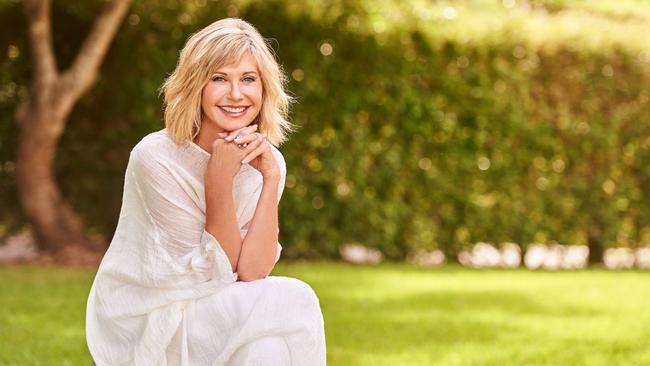
Olivia Newton-John, singer and actor
Born Cambridge, England, September 26, 1948
Died Los Angeles, August 8 2022
An innocuous dinner party meeting with a Hollywood producer helped to vault Olivia Newton-John from British-born Australian pop star into the glare of the international spotlight. Ten albums deep into her career as a country music singer at the time, the artist was 28 when cast in the film that would change her life.
Another Melbourne singer was the go-between that fortuitous night in 1977. Helen Reddy – best known for her 1972 anthem I Am Woman, and among the first Australian pop artists to make it big in the United States – hosted the Los Angeles dinner party whose guest list included Allan Carr, then producing a film adaptation of the Broadway musical Grease.
During the course of the evening, Carr came to realise that in the young singer, he had met the perfect Sandy Olsson – a character whose transition from innocent teenager to black-clad greaser is influenced by John Travolta’s Danny Zuko.
“I owe a lot to Helen, and to her pioneering, and to her friendship, and to that dinner,” Newton-John later noted.
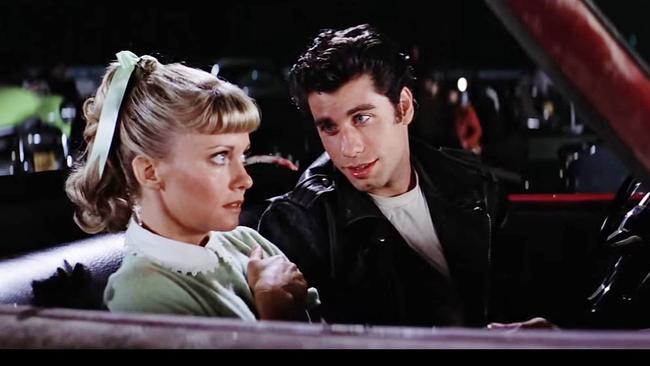
With her singing, acting and dancing in the co-starring role, Newton-John cemented herself as a true screen triple-threat. Grease was among the most popular films of 1978, as was its soundtrack, which sold 525,000 copies within six months in Australia, and 25 million copies worldwide.
The soundtrack paired off Newton-John and Travolta on Summer Nights and You’re the One That I Want - the biggest-selling duet of all time - as well as her standout solo performance, Hopelessly Devoted to You. The two latter songs were written and produced by long-time collaborator John Farrar.
The film’s final scenes saw her smoking a cigarette while wearing a leather jacket and dark sunglasses, a pose that allowed Newton-John to pivot from being a sweet singer of country ballads into an artist with more edge.
“My image had been so white bread, so milkshake, and Grease was a chance to do something different,” she later reflected. “I didn’t want to be 40 years old and still be the girl next door.”
Notwithstanding her iconic turn as Sandy, further attempts to branch out as an actor were largely forgettable, including the 1980 box-office flop Xanadu, a musical dismissed by a Variety critic as “stupendously bad” and a film “whose only salvage is the music”.
Xanadu’s platinum-certified soundtrack was led by Magic, another John Farrar-penned single that spent a month at No.1 in the US. But it was her next hit that would become her biggest – and raunchiest.
“I took you to an intimate restaurant / Then to a suggestive movie,” she sang in the opening verse of Physical. “There’s nothing left to talk about / Unless it’s horizontally.” Tina Turner had been offered Physical, but baulked at the lyrics.
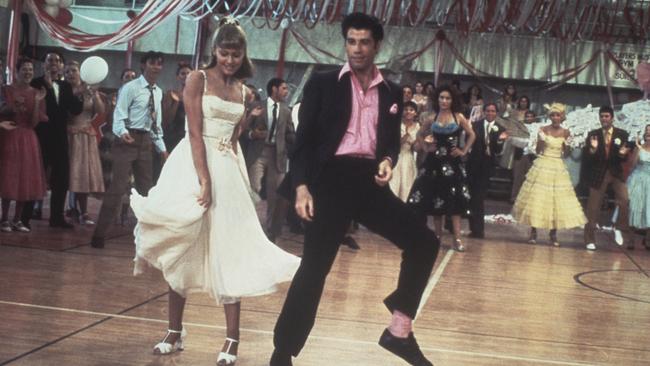
Released in 1981, the title track of her 12th studio album coincided with the beginning of the music television boom, and its accompanying video cleverly subverted the song’s overtly sexual lyrics by featuring the singer and several unfit men working out, with the blue-eyed star memorably clad in a white leotard, purple tights, blue top and white headband. Its closing scenes saw the out-of-shape men transform into buff specimens, who walked out of the gym holding hands.
Physical, written by Terry Shaddick and Brisbane-raised Steve Kipner, spent 10 weeks at No.1 in the US where it was 1982’s year’s top selling single, while its video won a Grammy Award – Newton-John’s fourth, following wins best female country vocal performance, record of the year and best female pop vocal performance over 1973-74.
“Grease proved to be so important for me,” Newton-John told a reporter in 1990. “It meant I could have a hit movie with hit songs and a new image. Suddenly, if I wanted to be outrageous, I could. If I wanted to sing rock ‘n’ roll, I could. Had it not been for Grease, I don’t know if I ever could have gotten away with Physical.”
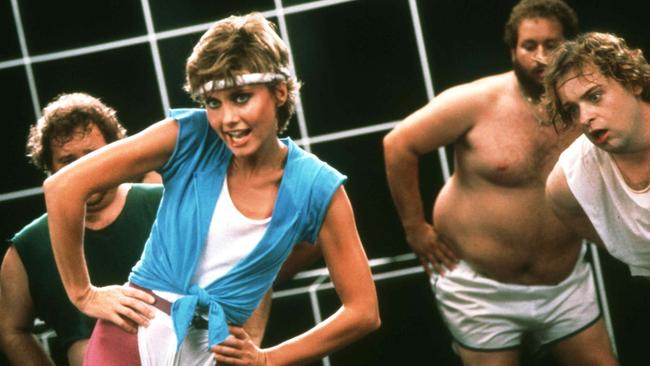
From a young age, Newton-John was entranced by music. Born the youngest of three children in Cambridge, England in 1948, the family moved to Australia in 1953, when her father, Bryn Newton-John – an academic of Welsh descent who taught German – was appointed master of Ormond College at the University of Melbourne.
Her mother, Irene, remained in Melbourne following a separation in the late 1950s, while Bryn moved to Adelaide to take up another academic position. Their second daughter found peace in music and writing poetry, which led to writing her first song with a family friend when she was on the cusp of becoming a teenager.
Its lyrics began: “Why, oh, why did you go away from me? / It seems like years to me / Why does it have to be? / My heart is a-breaking / ’Cause you’ve been a-taking / The love you said was meant for me.”
“Looking back, those are pretty heavy lyrics for 12!” wrote Newton-John in her 2018 memoir, Don’t Stop Believin’.
From that first composition, it was two years before she began performing at Brummel’s, a coffee shop in inner Melbourne. It was run by her brother-in-law, Brian Goldsmith, the husband of her older sister, Rona. The Goldsmiths’ daughter is the actor-singer Tottie.

“I’d go down to watch some of the performers play and sing,” Newton-John told the Australian Women’s Weekly in 2004. “I don’t think Mum was all that keen on me being there, but because Brian was running the place, she thought I’d be okay. There was a guitar player there, Hans George, and I started getting up with him to do some harmonies. Not long after, three friends and I started a singing group and we used to play some of the jazz clubs around town.”
That group was named the Sol Four; soon, the singer began stepping out as a soloist in clubs and coffee lounges, where she sang folk songs. In 1964, the 16 year-old appeared in a televised talent quest hosted by Australian rock pioneer Johnny O’Keefe named Sing, Sing, Sing, where her first performance was the Burt Bacharach song Anyone Who Had a Heart.
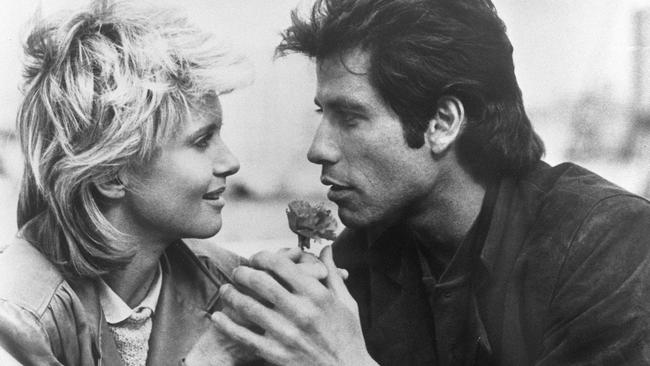
Newton-John won first prize – a trip to the UK – but it took considerable pressure from her mother, who had become her manager, to board the plane.
“I was never really an ambitious person. A lot of other people were ambitious for me,” she said in 1990. “My sister believed in me, my mother believed in me. I entered that contest for fun. I never thought I’d win. But before I knew it, I had indeed won, and I was still in school with choices to make. I suppose everything just fell into my lap.”
In time, she became one of the world’s most successful singers. First known for her breathy, delicate interpretations of country ballads such as Bob Dylan’s If Not For You (her version based on the George Harrison arrangement from his first post-Beatles solo album) which was released in 1971. She didn’t like Dylan’s singing, nor his version of If Not For You, but she was a Beatles fan and Harrison’s pop-like reworking attracted her. Later, she turned toward an adult-oriented rock style following Grease.
Her co-starring role with Travolta was to be her only screen hit. “To have been part of a movie that’s become a classic, that’s all right, because acting was not my main thing,” she told Who Weekly in 2000. “I was just lucky to be part of it.”
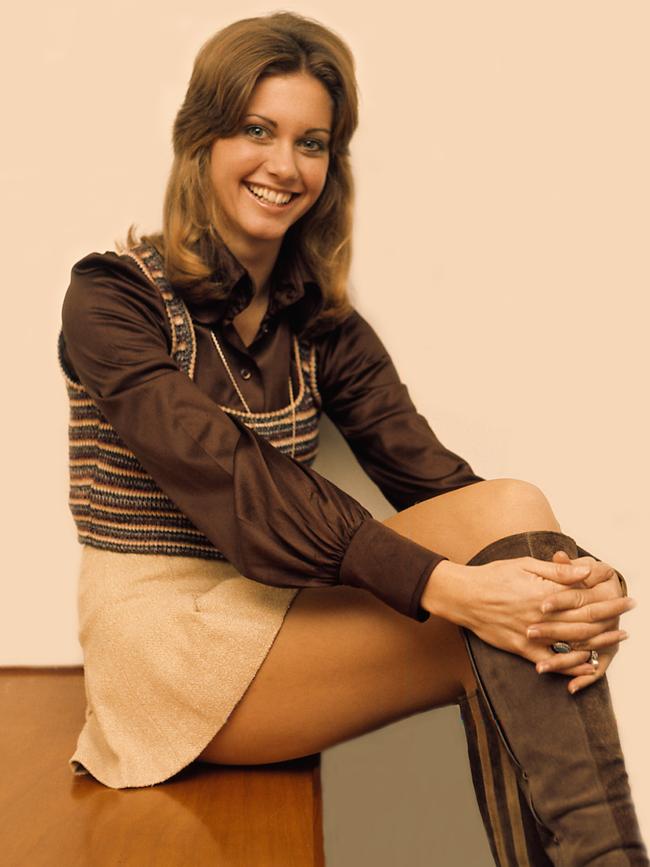
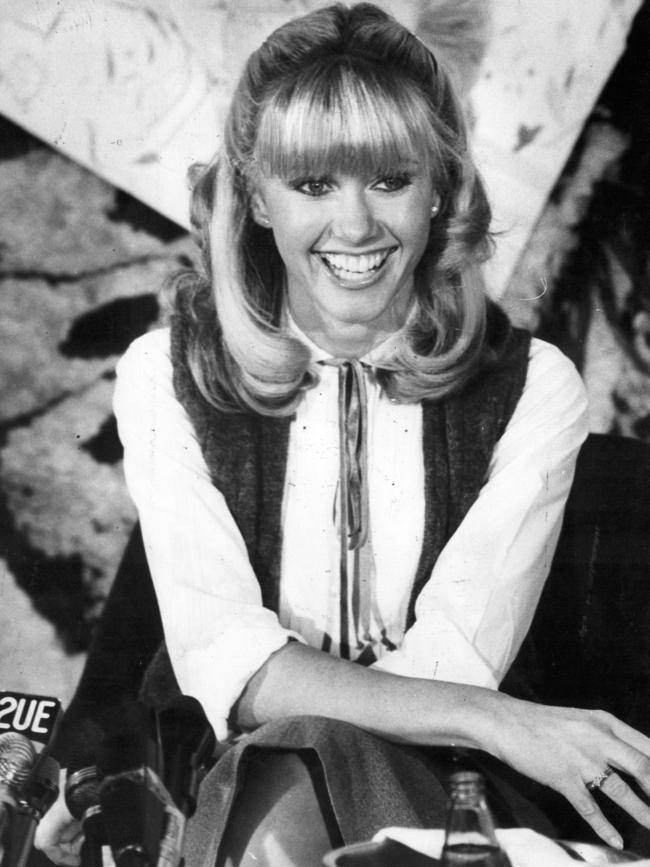
In 1986, the artist became a mother. Her only child, Chloe Rose, was born during her first marriage to American actor Matt Lattanzi, which ended in divorce in 1995.
A foray into a sportswear business named Koala Blue, which she helped to create and finance in 1982 – a year after the success of Physical – ended badly. At its peak, the company achieved sales of more than $25 million annually, with 49 stores opening on four continents, but the chain filed for bankruptcy in 1991.
Newton-John blamed the economic recession, but her investors saw it differently, citing poor management, shoddy merchandise and late deliveries. “It was depressing at the time, but you can’t dwell on the past,” she told Who Weekly. “I learned a lot of things. Like, don’t do it again!”
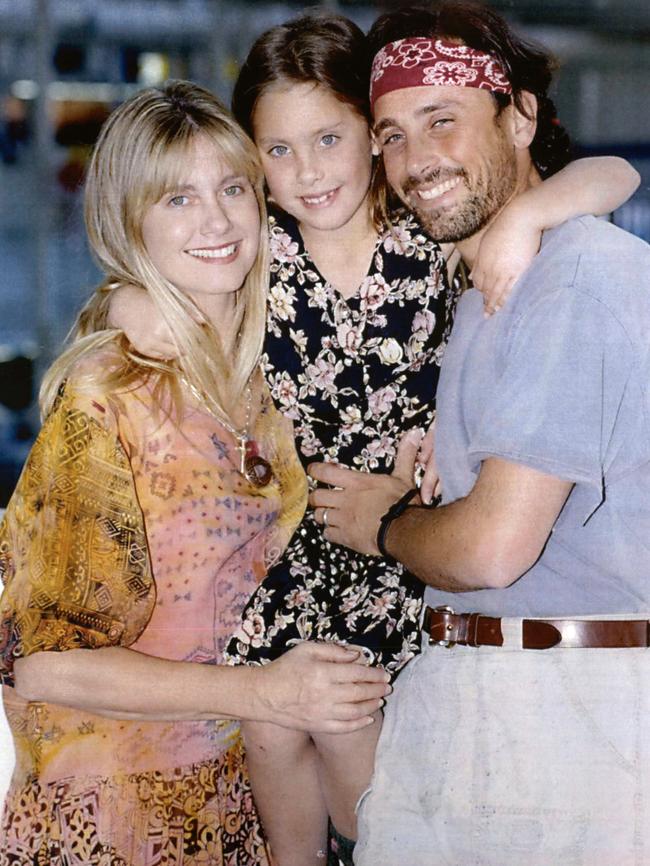
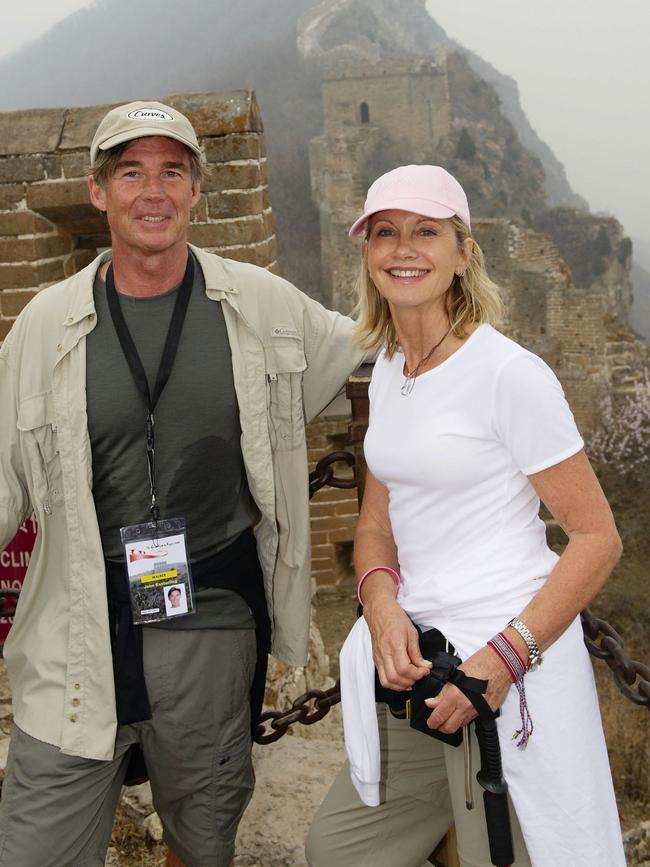
In July 1992, she was diagnosed with breast cancer. “I draw strength from the millions of women who have faced this challenge successfully,” she wrote in a statement at the time. “This has been detected early because I’ve had regular examinations, so I encourage other women to do the same. I am making this information public myself to save ‘inquiring minds’ 95 cents,” she wrote, referring to the National Enquirer, an American supermarket tabloid which thrived on celebrity gossip.
Newton-John became an Australian citizen in September 1994 – although she continued to live in the US — and her willingness to speak up about her diagnosis made her perhaps the nation’s most visible survivor of breast cancer.
In a letter to Australian Women’s Weekly published in February 1993, her positivity shone through.
“Dear readers, I am feeling very positive about the future, and I know that I am going to recovery fully from my breast cancer, and live a long and full life,” she wrote.
“I want to let other women in my situation know that it is possible to win when you find yourself with breast cancer, and that a positive attitude is very important – maybe the most important thing to help overcome this diagnosis.”
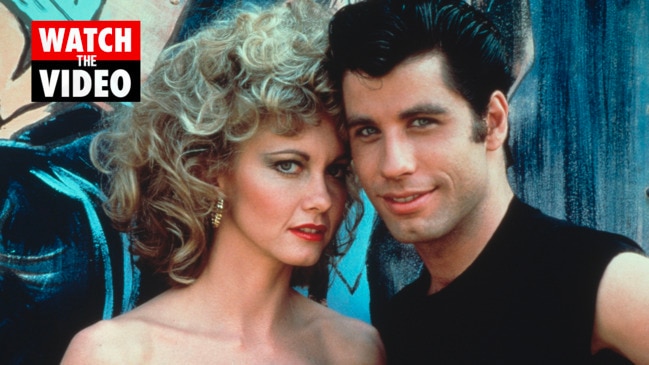
In 1998, she toured Australia with singers John Farnham and Anthony Warlow in a concert named The Main Event. A live recording from this tour went on to win an ARIA Award for highest selling Australian album in 1999.
She performed Dare to Dream with Farnham at the opening ceremony of the 2000 Sydney Olympics, while in 2002, she was inducted into the ARIA Hall of Fame. “There are not many jobs you can do that you enjoy as much now as you did the first day you began, and for that I feel very spoilt,” she told journalist Sue Smethurst that same year. “I look at my life and think I’m totally blessed.”
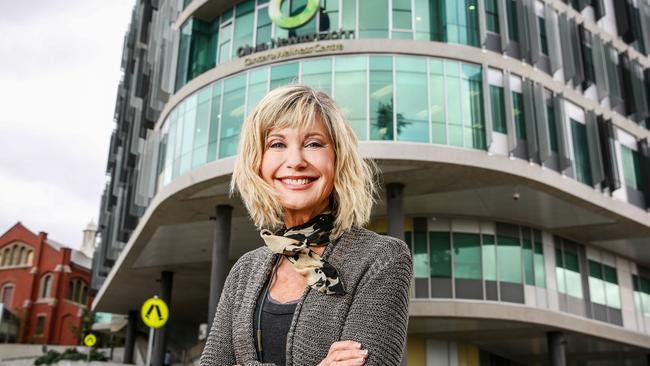
In an unusual and devastating turn of events, her nine-year relationship with cameraman Patrick McDermott ended with his disappearance off the coast of Los Angeles during an overnight fishing trip sea in 2005. He was 48.
“I think there will always be a question mark,” Newton-John told the Australian Women’s Weekly in 2009. “It’s a mystery, nobody really knows. Even though the US Coast Guard has closed the case and considers him ‘missing at sea’, I don’t think I will ever really be at peace with it. I remember moments during that period of time when I would look out the window at nature and find beauty. I would look out of the window and see the sun and the birds, and think that, one day, this will pass. You hope that anyway because, at the time, it feels like it never will – but it does.”
Newton-John did find love again, and married her second husband, American businessman John Easterling, in 2008: once on a mountain outside the Peruvian city of Cuzco, and again in a civil ceremony in Jupiter Island, Florida.
Her name lives on in the Olivia Newton-John Cancer Wellness and Research Centre, which opened at Melbourne’s Austin Hospital in 2012. “I had reservations about naming the centre after myself,” she said in 2002. “But my daughter Chloe said, ‘If it’s going to help people, why not?’”
Newton-John was a doting mother to Chloe, and supported her through anorexia and other problems but protected her privacy by rarely commenting in public about those struggles. She said in a 2016 interview: “It’s hard to be the child of a person who is in the limelight — I understand that – there is privilege but there are also other things that come along with that.”
It was with her old colleague Farnham that the singer performed for the final time on Australian shores in February 2020, as part of the Fire Fight fundraiser concert before about 70,000 people at Sydney’s ANZ Stadium.
Together they sang a stirring version of Two Strong Hearts, a hit from his 1988 album Age of Reason that the duo had performed together during The Main Event tour.
In introducing his friend, Farnham made a fuss of emphasising her new honorific, as the singer had recently become “Dame Olivia Newton-John” for her services to charity, cancer research and entertainment, as part of the Queen’s New Year honours list.
Her cancer returned in 2013, and again in 2017. With these challenging reprises, the woman whose voice delighted millions of the world’s music fans was much better equipped to face her second and third test, as that first experience in 1992 – and her mother’s death in 2003 – gave her a new perspective on a life well-lived.
“No-one escapes loss encroaching on their life; that is part of their journey,” Newton-John told the Australian Women’s Weekly in 2004. “And you know what? Instead of making me unhappy, it made me want to seize the day. It makes you appreciate the moments you have with each other, because life is so fleeting. When you watch someone you love go, you realise how transient it all is, and how important it is to appreciate the moment.”
Olivia Newton-John is survived by her second husband, her daughter Chloe Lattanzi and her siblings Tony and Sarah Newton-John.


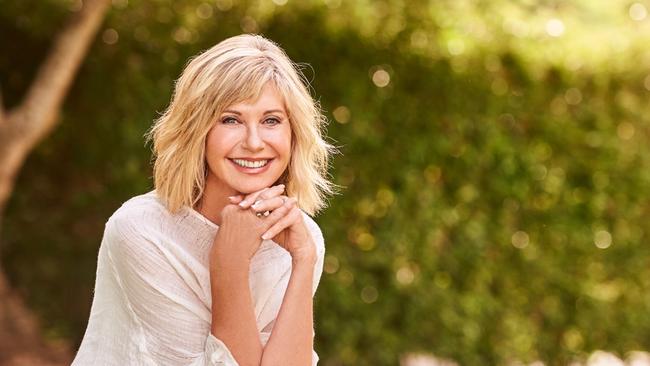
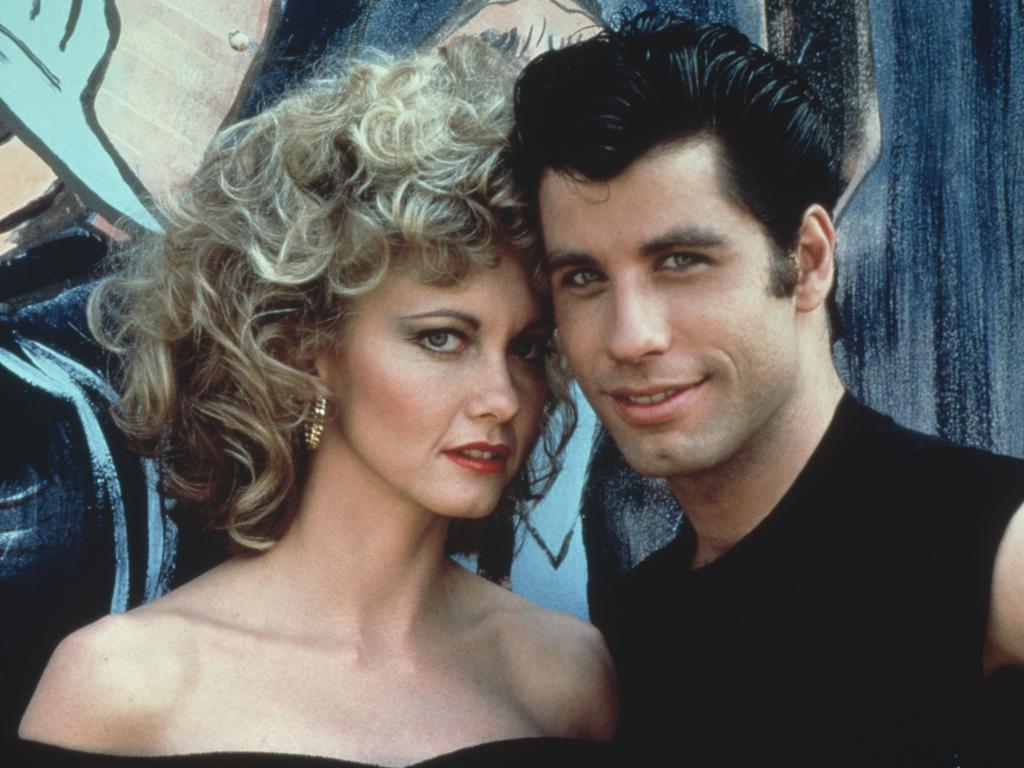
To join the conversation, please log in. Don't have an account? Register
Join the conversation, you are commenting as Logout